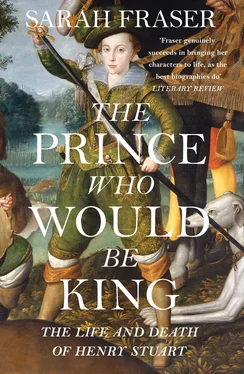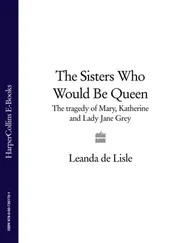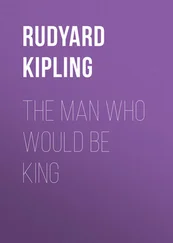Sarah Fraser - The Prince Who Would Be King - The Life and Death of Henry Stuart
Здесь есть возможность читать онлайн «Sarah Fraser - The Prince Who Would Be King - The Life and Death of Henry Stuart» — ознакомительный отрывок электронной книги совершенно бесплатно, а после прочтения отрывка купить полную версию. В некоторых случаях можно слушать аудио, скачать через торрент в формате fb2 и присутствует краткое содержание. Жанр: unrecognised, на английском языке. Описание произведения, (предисловие) а так же отзывы посетителей доступны на портале библиотеки ЛибКат.
- Название:The Prince Who Would Be King: The Life and Death of Henry Stuart
- Автор:
- Жанр:
- Год:неизвестен
- ISBN:нет данных
- Рейтинг книги:3 / 5. Голосов: 1
-
Избранное:Добавить в избранное
- Отзывы:
-
Ваша оценка:
- 60
- 1
- 2
- 3
- 4
- 5
The Prince Who Would Be King: The Life and Death of Henry Stuart: краткое содержание, описание и аннотация
Предлагаем к чтению аннотацию, описание, краткое содержание или предисловие (зависит от того, что написал сам автор книги «The Prince Who Would Be King: The Life and Death of Henry Stuart»). Если вы не нашли необходимую информацию о книге — напишите в комментариях, мы постараемся отыскать её.
NOW THE SUBJECT OF BBC2 DOCUMENTARY The Best King We Never Had
The Prince Who Would Be King: The Life and Death of Henry Stuart — читать онлайн ознакомительный отрывок
Ниже представлен текст книги, разбитый по страницам. Система сохранения места последней прочитанной страницы, позволяет с удобством читать онлайн бесплатно книгу «The Prince Who Would Be King: The Life and Death of Henry Stuart», без необходимости каждый раз заново искать на чём Вы остановились. Поставьте закладку, и сможете в любой момент перейти на страницу, на которой закончили чтение.
Интервал:
Закладка:
Mar facilitated and encouraged regular communication between Prince Henry’s schoolroom and Essex House, the Earl of Essex’s power base near Westminster. In this arrangement Mar boasted of his own importance as guardian of the heir and future King of Scotland and England. Essex confided to Mar that his faction’s support for the Scottish king might possibly lead to arms, forcing Queen Elizabeth to name James as her successor in Parliament. The imprimatur of parliamentary legal consent mattered to Essex’s group. For them, only a strong buffer of constitutional safeguards, legitimised in Parliament, guaranteed the Crown’s authority. Issues such as the succession must then, Essex House concluded, include parliamentary participation. Although, Essex believed MPs had to be guided by Parliament’s steering group, the Privy Council, staffed mainly by politically and militarily active aristocrats.
The Cecil faction, Essex’s rivals for Elizabeth I’s favour, also wanted to serve a monarch exercising absolute or ‘imperial’ powers, but contained by the due process of law and counsel by virtuous men of honour. The chivalric soldier in Essex would go further, fatefully, than any of the Cecil group in an attempt to bring this to fruition. For now, Essex suggested Mar come to London for private discussions.
This, then, was the complex, multifaceted and intensely ideological environment in which Henry began his formal education at the age of four: writing the alphabet; reading classical masters of Latin grammar; studying the elements of rhetoric; learning French, and a bold italic hand to express himself in. If James thought his own character had been adversely affected by the brutality and instability of his childhood, then perhaps Henry’s more temperate personality – described as showing ‘sparks of piety, majesty, gravity … using a mild and gentle behaviour to all, chiefly to strangers’ – reflected the kinder setting in which the boy was being raised. He shared his classroom with some of Mar’s seven boys, and the earl’s five daughters lived close by. Henry grew up with plenty of other children, but not his siblings.
Henry’s handwriting was seen as reflecting the quality of the king in training, and the esteem he felt for the recipient. A scrawled letter, half illegible in a childish hand, found to be full of spelling mistakes when it could be deciphered at all, insulted the person and country receiving it. Henry sat in the Prince’s Tower and practised italic script over and over. Cicero said you could not think well if you did not have a solid grounding in morally edifying texts, and good handwriting. So Henry filled his notebooks with lines of rrrrrs and ssssses . He perfected phrases before they went into the final copy of a letter. Typical child, he covered pages of his exercise books with his signature, practising his joyful twirls and flourishes –, Henricus , Henricus , Henry , Henry – for illustrious addressees.
By the age of six, he was initiating exchanges with foreign states and rulers. The first official letter he wrote in 1600 was to the Dutch States General and Maurice of Nassau, commander of the Protestant Dutch troops in their rebellion against Catholic Spain. In it he thanked them for their good opinion of him in his tender years. Henry promised these ‘first fruits of his hand’ showed ‘his interest in serving them … hereafter in better offices’. The Dutch were already paying the 500 crown annuity promised at his baptism, though it went straight to the king’s coffers. Henry would repay their faith in him, by coming to serve in the field, and learn the military arts from Maurice himself.
The king appointed a court favourite Sir Richard Preston to school the prince in the military arts. Preston had fought for the Dutch with the Earl of Leicester and Leicester’s brother, the late Sir Philip Sidney, both English heroes of international Calvinism. Many of Prince Henry’s household, and the Essexians in London, shared a belief that Scottish Calvinism and the Church of England were parts of a greater body: the united European community of Protestants. With a touch of knights on a quest about them, such individuals felt honour-bound to defend any fellow Protestant state threatened by a Catholic power. Subsequently Preston, ‘a gentleman of great accomplishments in mind and body’, became a follower of Essex.
As Preston trained Henry, it was quickly observed how well the young prince ‘began to apply himself to, and to take pleasure in, active and manly exercises, learning to ride, sing, dance, leap, shoot with the bow and gun, toss the pike, &c., being instructed in the use of arms’. Preston tutored Henry in the honour code of ‘Protestant martial Virtue’ he espoused. By May 1599, Preston occupied a ‘“Praetorian” role’, as ‘captain over all the officers in the King’s Household’.
Veterans of Europe’s religious wars, men such as Preston, recounted poems and stories, and introduced the prince to the latest innovations on the modern battlefield. Henry learned, while tales of siege trenches, training and army camp life replayed in his and his followers’ imaginations. Soon ‘no music being so pleasant in his ears as the sounding of trumpet and the beating of drum, the roaring of the cannon, no sight so acceptable, as that of pieces, pistols, or any sort of Armour’, he wanted to be practising his martial skills all the time. The young prince attacked a plate of strawberries, holding up his two spoons. ‘The one I use as a rapier,’ he chattered, ‘and the other as a dagger.’ Looking on, the men around him proudly shared these anecdotes: signs their education was taking root.
Henry also grew up with a keen sense of the threats to his father’s kingdom. He saw the bodies of rebels rotting on gibbets as he trotted in and out of Stirling Castle. He knew how some of ‘the great ones’ in Scotland plotted to seize him and take him away. Sitting on his pony with his friends, watching the king and Mar hunt stags, someone asked Henry if he loved to hunt animals as much as his father.
‘Yes,’ said Henry, ‘but I love another kind of hunting better.’
‘What manner of hunting?’ they asked.
‘Hunting of thieves and rebels with brave men and horses,’ and adding: ‘such thieves as I take shall be hanged, the great ones higher than the rest.’
By the age of seven, Henry was seeking to improve his essays by imitating classical masters, composing epistles in Latin in different styles. In the first instance Adam Newton, a master of style, would compose them and Henry transcribe them. But as he grew, Henry began to pick out anything that caught his eye. Newton gave him Cicero’s De Officiis . Henry annotated it, heavily, underlining unusual words and phrases and copying them out to help him remember. He numbered the stages of a Ciceronian argument so he could learn how to debate. He marked up phrases he liked – often those where Cicero advocated active participation in public life.
Henry took care when writing to address both his parents. In one letter he thanked them for various gifts, enquired after their health and assured them of his own excellent and busy life. He also sent his father some verses.
In reply the king chastised him: ‘Ye have rather written than dyted it’ (copied not composed it). As a father, James was easy and loving. As kingmaker, he was harder to please. ‘I confess I long to receive a letter from you that may be wholly yours,’ James continued, listening for that golden tone – son to father, as well as Prince Henry to the King’s Majesty. ‘Nothing will be impossible for you if you will only remember two rules,’ he told him. ‘Trust a little more to your own strength and away with childish bashfulness’, and ‘my oft repeated rule unto you, whatever ye are about, hoc age ’, do not hang back – ‘Strike!’
Читать дальшеИнтервал:
Закладка:
Похожие книги на «The Prince Who Would Be King: The Life and Death of Henry Stuart»
Представляем Вашему вниманию похожие книги на «The Prince Who Would Be King: The Life and Death of Henry Stuart» списком для выбора. Мы отобрали схожую по названию и смыслу литературу в надежде предоставить читателям больше вариантов отыскать новые, интересные, ещё непрочитанные произведения.
Обсуждение, отзывы о книге «The Prince Who Would Be King: The Life and Death of Henry Stuart» и просто собственные мнения читателей. Оставьте ваши комментарии, напишите, что Вы думаете о произведении, его смысле или главных героях. Укажите что конкретно понравилось, а что нет, и почему Вы так считаете.












